It's a New Day in Public Health.
The Florida Department of Health works to protect, promote, and improve the health of all people in Florida through integrated state, county, and community efforts.
Florida’s Severe Weather
Contact: Florida Health
- 850-245-4444
- health@flhealth.gov
-
Mailing Address
Florida Health
4052 Bald Cypress Way
Tallahassee, FL 32399
Staying Alert to Florida’s Storms
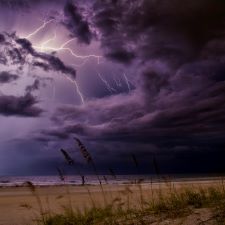 Florida’s weather isn’t always sunny, severe events like intense thunderstorms, lightning, and even tornadoes can occur. Understanding these challenges is key to staying safe.
Florida’s weather isn’t always sunny, severe events like intense thunderstorms, lightning, and even tornadoes can occur. Understanding these challenges is key to staying safe.
Key Storm Components
- Thunderstorms
- Lightning
- Tornadoes
- Other Severe Weather Considerations
- Essential Safety Tips
Summer thunderstorms in Florida develop rapidly and often bring heavy rain, gusty winds, and the potential for flash flooding. These storms form quickly as warm, moist air rises, creating cumulonimbus clouds that can produce intense rainfall over a short period. Even without lightning, the sudden downpours can overwhelm drainage systems, leading to dangerous flash floods.
Visit our Thunderstorm page for mor information on thunderstorms in Florida.
Florida is known as the “lightning capital” of the U.S. Lightning can occur within thunderstorms or on its own, striking without warning. It remains one of the leading causes of weather-related injuries in the state. Because lightning can strike even if a storm seems distant, it’s crucial to seek shelter immediately when you hear thunder.
Visit our Lightning Safety page for more information on lightning in Florida.
Although not as frequent as in Tornado Alley, tornadoes can form as a byproduct of intense thunderstorms. Even relatively weak tornadoes can cause localized damage, making it essential to have a predetermined plan for seeking shelter when warnings are issued.
Visit our Tornado Safety and Preparedness page for more information on tornadoes in Florida.
While thunderstorms, lightning, and tornadoes are the most common severe weather events, Florida’s weather can also change rapidly:
- Wind and Hail:
Strong gusts and occasional hail can occur during storms, potentially damaging property and vehicles. - Flash Flooding:
Rapidly developing storms can lead to flash floods. Although flooding is covered on its own page, it’s important to recognize that heavy rain during severe weather can quickly create dangerous conditions. - Hurricanes:
Hurricanes are a major weather event in Florida. For detailed information on hurricanes, refer to our dedicated hurricanes page.
When severe weather is on the horizon, take these steps to protect yourself and your loved ones:
- Monitor Local Forecasts:
Stay informed through trusted sources such as NOAA and the National Weather Service. - Seek Shelter Promptly:
At the first sign of thunder or when lightning is detected, move indoors immediately. Avoid open areas, tall objects, and bodies of water. - Prepare an Emergency Plan:
Identify a safe area—whether it’s a designated storm shelter or an interior room and ensure everyone in your household knows the plan. - Follow Local Advisories:
Pay attention to emergency notifications and be ready to act if a tornado or flash flood warning is issued.
Florida’s severe weather can change quickly and unexpectedly. By understanding the distinct components, from rapidly developing thunderstorms and dangerous lightning to occasional tornadoes and damaging high winds, you can better protect yourself when storms strike. Staying alert, planning ahead, and following safety guidelines are key to keeping you and your loved ones safe during Florida’s dynamic weather events.
For up-to-date safety guidelines and further information, visit:- NOAA Severe Weather Information
- National Weather Service Safety Pages
- Your local emergency management website
Stay informed, plan ahead, and be prepared to take action at the first sign of severe weather.
Disclaimer: The links and content provided on this page are for informational purposes and your convenience. The Florida Department of Health (DOH) does not endorse, approve, or guarantee the products, services, or opinions offered on external websites. Furthermore, the DOH is not responsible for the accuracy, content, or availability of these external sites. For questions or concerns, please contact the external site directly.



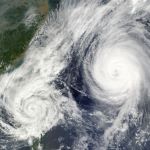
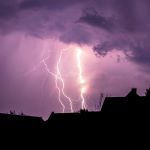
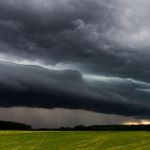
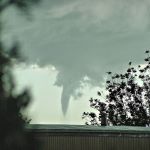


Connect with DOH